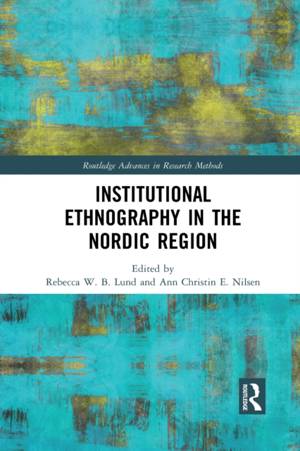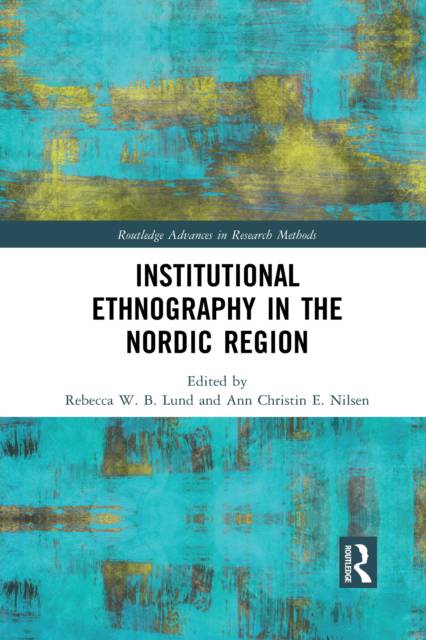
- Afhalen na 1 uur in een winkel met voorraad
- Gratis thuislevering in België vanaf € 30
- Ruim aanbod met 7 miljoen producten
- Afhalen na 1 uur in een winkel met voorraad
- Gratis thuislevering in België vanaf € 30
- Ruim aanbod met 7 miljoen producten
Institutional Ethnography in the Nordic Region
Omschrijving
Developed in response to the theoretically driven mainstream sociology, institutional ethnography starts from people's everyday experiences, and works from there to discover how the social is organized. Starting from experience is a central step in challenging taken-for-granted assumptions and relations of power, whilst responding critically to the neoliberal cost-benefit ideology that has come to permeate welfare institutions and the research sector. This book explicates the Nordic response to institutional ethnography, showing how it has been adapted and interpreted within the theoretical and methodological landscape of social scientific research in the region, as well as the institutional particularities of the Nordic welfare state. Addressing the main topics of concern in the Nordic context, together with the way in which research is undertaken, the authors show how institutional ethnography is combined with different theories and methodologies in order to address particular problematics, as well as examining its standing in relation to contemporary research policy and university reforms. With both theoretical and empirical chapters, this book will appeal to scholars and students of sociology, professional studies and anthropology with interests in research methods and the Nordic region.
Specificaties
Betrokkenen
- Uitgeverij:
Inhoud
- Aantal bladzijden:
- 244
- Taal:
- Engels
- Reeks:
Eigenschappen
- Productcode (EAN):
- 9781032086446
- Verschijningsdatum:
- 30/06/2021
- Uitvoering:
- Paperback
- Formaat:
- Trade paperback (VS)
- Afmetingen:
- 156 mm x 234 mm
- Gewicht:
- 349 g

Alleen bij Standaard Boekhandel
Beoordelingen
We publiceren alleen reviews die voldoen aan de voorwaarden voor reviews. Bekijk onze voorwaarden voor reviews.










